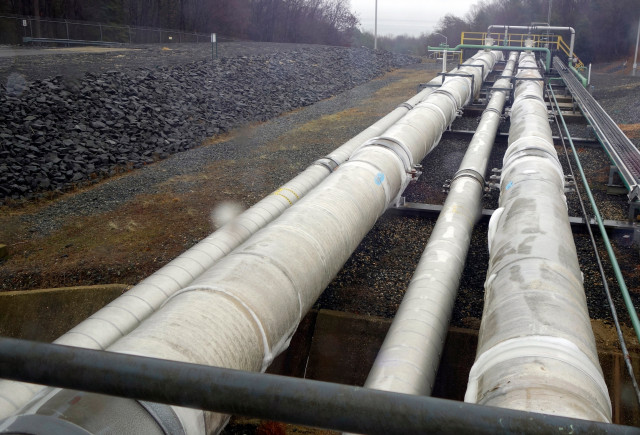Industrialists blame govt for gas crisis
Say despite capacity it did not increase fuel imports to bridge shortfall

Heads of seven industrial estates in Karachi held the government responsible for the ongoing gas crisis nationwide, saying it did not import sufficient fuel to bridge shortfall despite several alerts and availability of capacity for additional imports.
Speaking at a press conference, Sui Southern Gas Company (SSGC) Deputy Managing Director Saeed Ahmed Larik, however, blamed non-export industries for the worsening crisis.
“Industrialists are not cooperating. They have continued to operate captive power plants (generators) on gas despite that they can run the plants on diesel or they can take electricity supplies from the national grid to operate industries,” he said.
Earlier on December 31, 2020 the gas utility asked non-export industries to temporarily stop using gas for power production so that gas supply could be diverted to residential consumers, who stay on top in the priority order, especially during the winter season when the fuel “becomes the matter of life and death” for them.
Speaking at a joint press conference of heads of seven industrial towns of Karachi, Korangi Association of Trade and Industry (KATI) President Saleemuz Zaman said the government had assured them that it would make arrangement to import enough gas to bridge the shortfall. However, it did not fulfill its commitment.
“We have checked with RLNG (re-gasified liquefied natural gas) import terminal operators, they have surplus capacity for additional gas imports and pipelines are also capable of transporting more gas,” he said.
“We (industrialists) have been issuing alerts to the government since September and October (2020) and demanded that it make import arrangement. Unfortunately, the government took no action,” he lamented.
The government increased the gas price for export industries’ captive power plants with effect from October 1, 2020 on the assurance that there would be no gas load-shedding. However, last week SSGC issued a notification for gas supply suspension to export industries on Sundays as well.
Later, it withdrew the notification following the nationwide power breakdown at the weekend. The government increased the gas price by over 18%, or Rs144, to Rs930 per mmbtu with effect from October 1, 2020 compared to Rs786 earlier.
This is not the first year when the industries are in trouble due to the gas crisis during winter when demand for the fuel peaks with the drop in temperature. A large number of households - which use gas supplies to fight freezing temperatures through gas-run stoves, heaters and geysers - are also complaining about long outages this year.
Larik said SSGC had issued notices to export industries and power plants to temporarily suspend gas supply on Sundays, but “withdrew the notification after the blackout…priority order changed after the power breakdown.”
“Use of imported gas (RLNG) is the way forward…since the production of indigenous gas has continued to drop,” he suggested.
Besides, the exploration firms have failed to find new meaningful gas reserves for over a decade now. Moreover, it takes weeks and months to import gas. The price of RLNG hit historic high around $21 per mmbtu this winter in the international markets, while the government did not place import orders for the winter season when the fuel was available at $3-4 per mmbtu during last summer.
On a national level, the country is facing a shortfall of around 1,700 mmcfd these days. The gas utility firms are supplied a cumulative 4,300 mmcfd (including imported gas) compared to aggregated demand of 6,500 mmcfd.
At this point of time, SSGC has the only option to improve gas supplies to residential customers and that is to divert 70 mmcfd from non-export industries. “We have increased gas supplies by threefold to 200mmcfd to Quetta and other areas in Balochistan where temperature has fallen to freezing level.”
Published in The Express Tribune, January 12th, 2021.
Like Business on Facebook, follow @TribuneBiz on Twitter to stay informed and join in the conversation.



















COMMENTS
Comments are moderated and generally will be posted if they are on-topic and not abusive.
For more information, please see our Comments FAQ